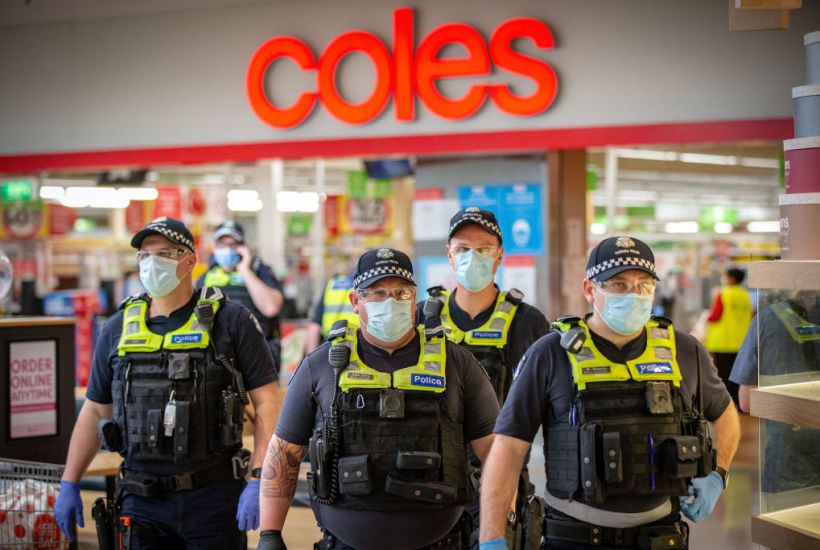People should be wary of politicians justifying their actions in terms of “following the experts.” Victorians are learning that lesson in the most brutal way possible.
Everything the Victorian government has done has been rationalised as following “science and data and doctors” (yes, that’s a direct quote). It’s clear many Victorians, at least initially, took that assertion on face value. But Daniel Andrews’ relentless referral to “the advice of experts” is cynical market-researched banality.
Firstly, it implies all experts believe the same thing. That there is one approach put forward by the experts and the government is following it. But academics and experts in all fields rightly spend their careers arguing with each other. The absence of consensus was made clear a couple of weeks ago when all manner of experts lined up to criticise the Andrews government’s “roadmap.”
There’s clearly no expert consensus to the COVID-19 pandemic and there never was. The fact that different jurisdictions in Australia and around the world took different approaches should’ve put paid to the consensus fairy tale months ago. Indeed far from being an exemplar of the expert consensus, in instituting the longest lockdown in the developed world, Victoria is an outlier.
When Andrews, or any other politician, says they are following the advice of experts, they mean they are following the advice of the experts that endorse their particular policy prescriptions.
Secondly, believe it or not, politicians bend the truth. Justifying policy as following expert advice is a sublime political tool, particularly during a pandemic when people are frightened. Victoria’s grotesque curfew is a prime example. Like everything else, it was justified by the Premier as following the advice of experts. Earlier this month he was shamefully forced to admit “that’s a decision I’ve made” after the Chief Health Officer and police commissioner said it had nothing to do with them.
Thirdly, many people don’t realise experts frequently get things wrong. In 1968 one of the world’s most prominent biologists Robert Ehrlich wrongly predicted the ‘population bomb’ would lead to 65 million Americans starving to death in the 1980s. The American Psychiatric Association considered being gay a mental disorder until the 1970s.
These positions seem ridiculous now, but they were once cutting–edge expert advice. It is sensible to assume that some of the positions modern society holds as indisputable fact will in the not-too-distant future be considered equally ridiculous.
Closer to home, modelling from the federal Department of Health from April reported that with isolation, quarantine, and social isolation, the number of Australians requiring intensive care while infected with coronavirus would peak at around 5,000. Fortunately, it peaked at around 100.
And of course, we were told masks weren’t necessary — until suddenly they were.
This isn’t because experts are stupid or lying. The fact is, it’s really, really difficult to predict the outcome of unbelievably complicated public policy issues. Which is all the more reason to not treat expert advice as gospel.
Finally, and most importantly, the notion that we could chart our way through this via the advice of experts alone was always simply the abrogation of moral responsibility on behalf of our political leaders. The COVID-19 pandemic has required political leaders to make admittedly excruciating moral trade-offs. Whilst experts play a valuable role in informing these decisions, they can’t make them for us.
As far as I know, there isn’t a peer-reviewed journal article in Lancet telling us to place the wellbeing of adults ahead of the wellbeing of children. Yet that is what we’ve done. Or that movie stars and footballers should be granted exemptions to rules before people hoping to visit dying relatives.
These are moral trade-offs. And any time anyone’s tried to talk about them it’s firstly disgracefully been implied that they don’t care about people dying. And secondly, politicians have gutlessly responded that they are just “following the experts.”
As government encroaches ever more into our lives and public policy becomes more complicated, people need to be awake to the fact that expert advice is being weaponised in politics more than ever – from climate change to public health to the economy. Whilst expert advice can be useful and help us make decisions, it is only advice. In a democracy, the final call on public policy matters – and difficult moral trade-offs — is made by us.
Victorians have paid an incredible price for allowing politicians to put matters of morality in the hands of experts. Let’s never let this happen again.
Peter Gregory is a Research Fellow at the Institute of Public Affairs. Join as a member at www.ipa.org.au.
Got something to add? Join the discussion and comment below.
Get 10 issues for just $10
Subscribe to The Spectator Australia today for the next 10 magazine issues, plus full online access, for just $10.


























Comments
Don't miss out
Join the conversation with other Spectator Australia readers. Subscribe to leave a comment.
SUBSCRIBEAlready a subscriber? Log in